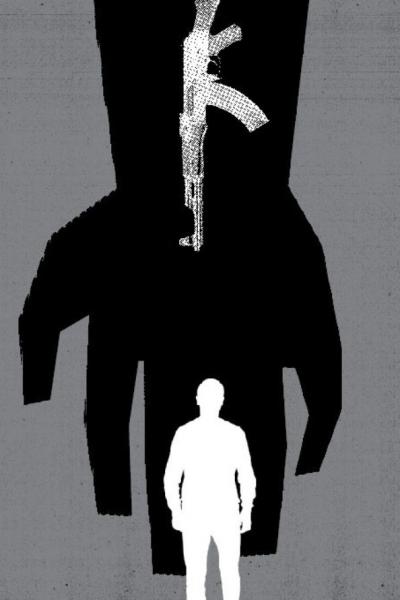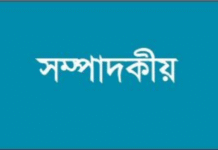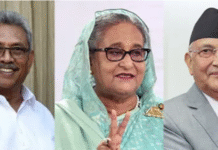When ignorance, false indoctrination and misconceptions of religion prevail, religion is conveniently misused by some to radicalise people to fight against a system that ‘subjugate’ and ‘humiliate’ them. In some societies, the religious culture can be too dogmatic, with too much focus on certain rituals, ignoring – and sometimes violating – the values and principles of Islam.
A forceful ongoing discourse among different segments of a society – including liberal and Islamists – is most needed to help bring about a moderate mindset. Visionary academic curricula are an imperative to reform a society and to challenge radicalism. This should be the top priority in the Muslim world. In Tunisia, it is the on-going dialogue between the Islamists and secularists, and the consequent changes in both that have been influencing the whole nation – that was previously polarised and confrontational – to come together. A constructive engagement between opposite forces empowers the moderates and marginalises the extremes on all sides. To expose democratic values and processes early on to help bring about future leadership and a moderate culture, the country is planning to incorporate student body elections, not only at the university level but also at the lower levels, going down to the primary schools. This is an extremely important agenda towards building a democratic culture and to de-radicalise young people.
The worldwide decline of moral and family values is also a deep-rooted cause of increased frustration and derailment of many young people, thus leading to radicalisation. Greed and materialism and the encroachment of the global mercantile culture that defines success in terms of wealth alone, drives families to become disjointed and self-centered, ignoring greater family networks and neglecting social responsibilities. The greater family and social network that always helped cultivate human bonding and values are all falling apart under the pressures of modernity.
Unfortunately, when young people increasingly turn towards religion for a sense of purpose and peace in life, they are again indoctrinated by the unenlightened and uninformed extremist clerics who propagate ideas that violate the very spirit of Islam and its universal message. They often teach intolerance against others by inducing ignorant followers to see the world in terms of “us versus them”, believers versus the kafir and mushriq, the Muslim World versus the ‘evil’ West. Their negative voices remain prominent because the learned and enlightened Muslims have failed to bring up a discourse that establishes the true meaning of Islam, as they often resort to silence, either out of fear for safety or of losing their standing in society.
If a person or group can be convinced that they can achieve their economic, social and/or political objectives through their constructive work and efforts in life, they would refrain from a destructive course. The best way to fight terrorism then is to gain the confidence of people by offering them a fair chance and an impartial rule of law that they can count on. The problems arise when people, due to the deficiencies of a system and situation, fail to have that trust in governance.
Boko Haram in Nigeria grew during an utterly repressive corrupt rule of an autocratic regime. Al-Qaeda and Taliban in Afghanistan and al-Shabaab in Somalia took root and grew in an environment of utter chaos, turmoil and dysfunction, where people become desperate and sympathetic towards rebellion. Injustice, the lack of rule of law, wide disparity between the few rich and the vast majority of poor populations, lack of jobs, a bleak future and frustration – all create circumstances where extremism and terrorism find the ideal breeding ground.
People rebel when they feel there is no other way out. When victims of oppression join the cause they can become ruthless. The core of the Islamic State consists of many of Iraq’s Sunni army who were disbanded after the fall of Saddam Hussein.
In this global village, where there is an ever increasing awareness of human rights and dignity, leading to ever greater demand for democracy and liberty, no society could remain healthy if a segment is subjugated, humiliated and marginalised. The governments that ignore this ever unfolding reality are doing tremendous disservice to their own societies and to their own future.
Source: The Daily Star










